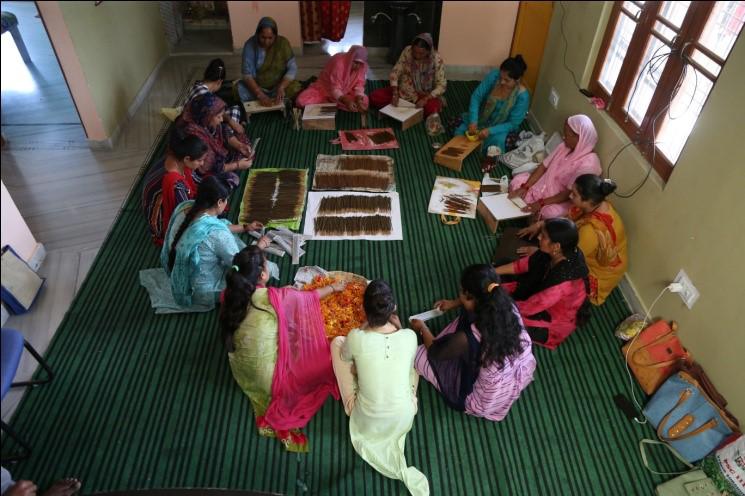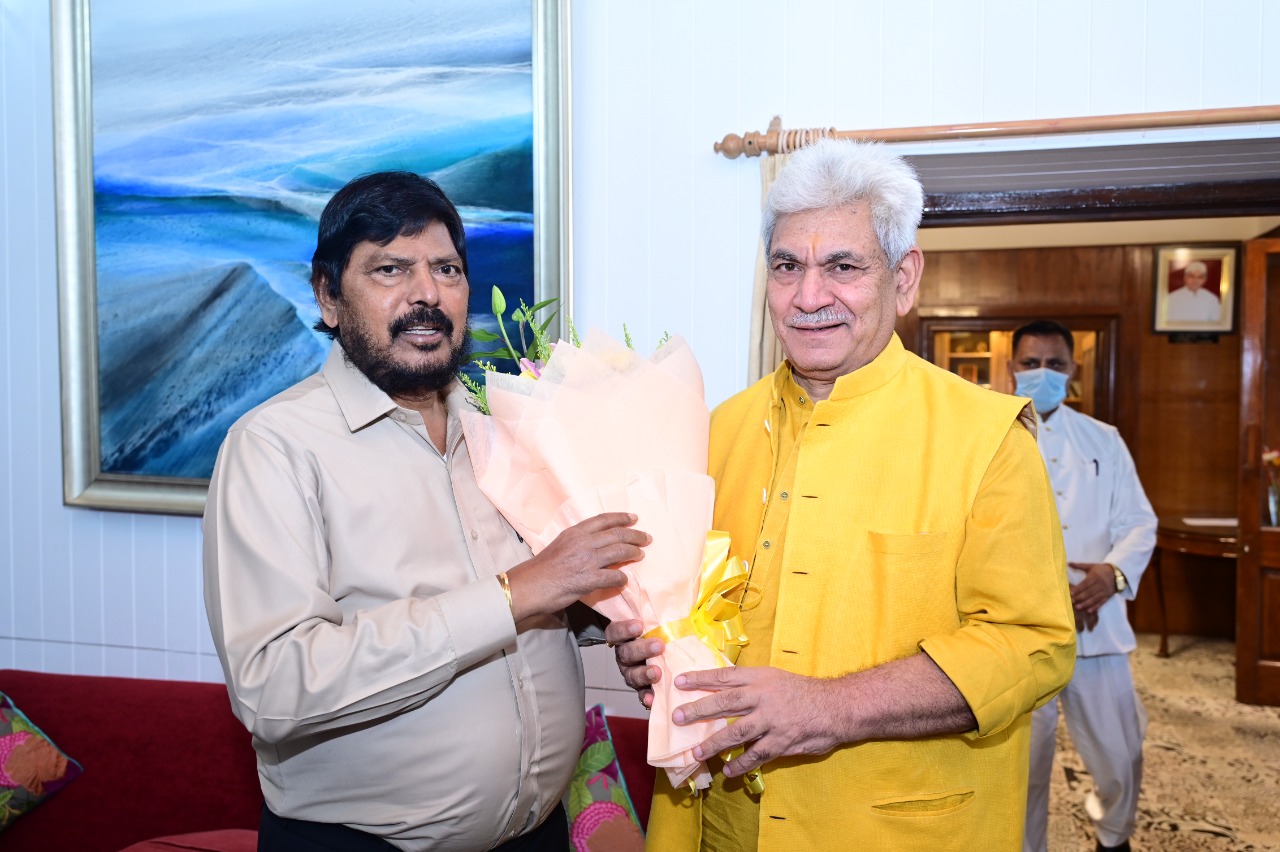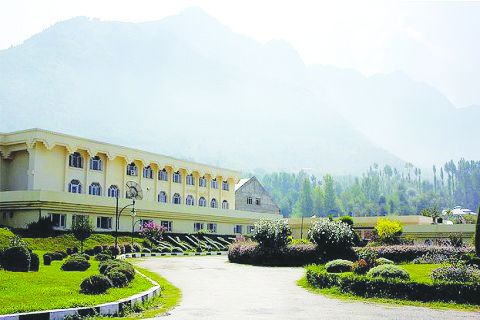Kol Kandoli shrine, which is considered to be the first stoppage en-route Shri Mata Vaishno Devi Shrine, is visited by hundreds of local as well as outside-J&K pilgrims every day.
Higher the number of visitors means high flower offerings to the Hindu deity, Durga, in the temple; thus more flower waste in and around the shrine.
To reduce this waste, a group of 10 women, who work with Sanjeevani Self-Help-Group (SHG) established under the Jammu and Kashmir Rural Livelihood Mission (JKRLM), have found a unique way—convert the dry flower waste into incense sticks.
These incense sticks are then sold in Kol Kandoli temple itself and other major shrines of Jammu, including the Vaishno Devi Shrine in Katra.
How does the SHG work?
Rekha Rani, 31, wife of Sandeep Kumar of Udhampur, who is now settled in Nagrota, is the team leader of Sanjeevani Group. Most women in her group are from rural backgrounds and unemployed. So, to give these women a sense of self-reliance, Rekha Rani has given all of them different tasks as per their understanding and expertise i.e. from collecting flower waste from temple to making incense sticks to selling the same in temple and other areas.
Two to three women in my self-help-group go to Kol Kandoli shrine every morning to collect around one quintal of flower waste.
“During Navratras, we collect more than the usual waste,” Rani tells The Rising Kashmir.
After the flower waste is collected, the other group of 2-3 women separate the flower petals and put them in sunlight for drying.
Once the flowers are dried, all the women SHG members converge at the residence of one of the SHG members to grind the dried flowers and make incense balls out of them. Different scented flavours are added to these balls later. These balls are then rolled to make incense sticks out of them.
How are incense sticks marketed?
To provide the marketing support to the women SHGs, the JKRLM has set up a departmental shop at Kol Kandoli shrine itself where one of the group members sells the flower directly to the devotees.
According to Block Programme Manager (BPM) Dansal, Sonal Sharma, a departmental shop has also been established at Jammu Airport where the women can sell their product directly to the consumers.
“Departmental Melas, exhibitions are the other places where women can sell their products,” added Sonal Sharma.
SHG members earn decent living
On an average, the 10 women self-help-group members make Rs. 300-400 per day from the sale of the incense sticks.
But during the Navratra festival, when their incense sticks are purchased in bulk by Shri Mata Vaishno Devi Shrine Board and other religious institutions, the average income of the women SHGs go up.
“More than income, our Self-Help Group is giving us a sense of self-reliance, which matters a lot,” says one of the women SHGs, Satya Devi, 29, who did nothing prior to joining the group.
“For many like me, who are now part of this group, earning means self-dependence. This feeling cannot be described in words,” she adds.








